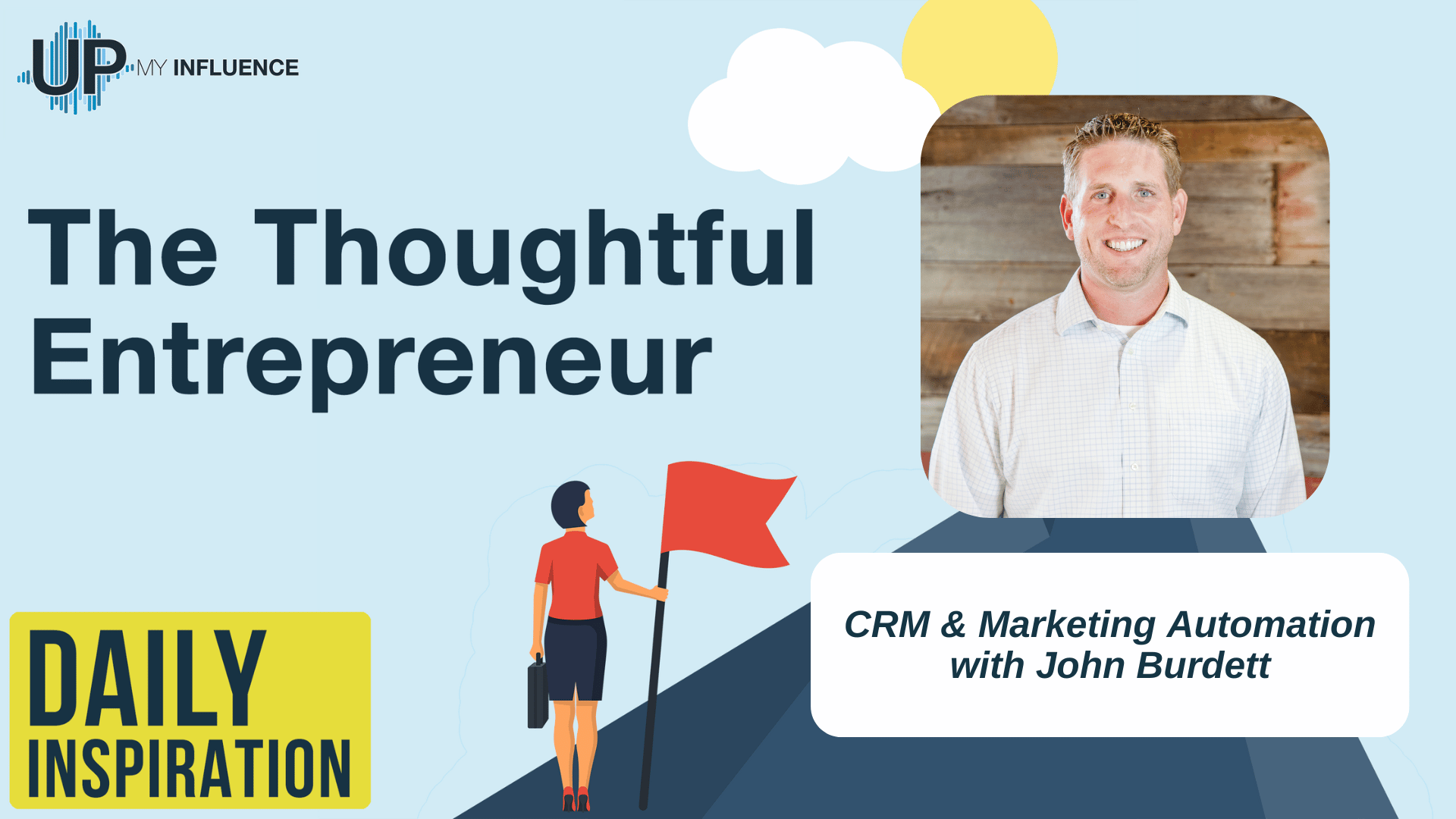THE THOUGHTFUL ENTREPRENEUR PODCAST
In this episode of the Thoughtful Entrepreneur, your host Josh Elledge speaks with the President and CEO of Fast Slow Motion, John Burdett.

John Burdett discussed the transformative power of Customer Relationship Management (CRM) platforms and how businesses can leverage these tools to scale and thrive. Fast Slow Motion specializes in helping companies grow by maximizing the capabilities of CRM platforms like Salesforce and HubSpot.
Fast Slow Motion offers key services such as standardizing business processes within CRM platforms. By centralizing all data, businesses can achieve consistency and efficiency across their organization, allowing for more streamlined operations and better decision-making based on accurate and comprehensive data.
John also highlighted the role of empathy in sales. CRM platforms can qualify potential clients, ensuring a good fit for the service provider and the client. John emphasized the importance of systems and processes enabling businesses to help the right clients and build meaningful relationships based on a deep understanding of their needs.
Key Points from the Episode:
- Importance of fully utilizing CRM platforms for business growth
- Standardizing business processes within CRM platforms
- Implementing structured sales stages and cadences
- Role of empathy in sales and using CRM platforms to qualify potential clients
- Evolving landscape of CRM platforms and integration of AI into sales processes
- Mission and engagement approach of Fast Slow Motion in helping small businesses grow using technology
- Commitment to adding value and making a positive impact on clients' businesses
- Invitation to visit Fast Slow Motion website to learn more about their services
- Insights into the potential of AI in enhancing sales processes
- Emphasis on helping businesses that are ready to be helped and adding value to their growth journey
About John Burdett:.
John Burdett is an accomplished entrepreneur and the visionary founder of Fast Slow Motion, a company celebrated for its significant impact on the tech industry and noted for being listed among the Inc. 5000 fastest-growing private companies in America for five consecutive years. With a robust background in computer science and a knack for building technology businesses, John's expertise lies in creating scalable systems that help companies thrive. His journey, marked by a blend of athletic discipline and technological acumen, underscores his commitment to detailed, intentional execution and leadership.
John has directly contributed to scaling nearly a thousand businesses, showcasing his broad impact across various sectors. He is exceptionally skilled in utilizing Salesforce to enhance business operations, emphasizing organizational design, enterprise software development, and technology consulting. John is also committed to mentoring and coaching, underpinned by his values of integrity, hard work, and a healthy lifestyle, making him a beacon for aspiring entrepreneurs worldwide.
About Fast Slow Motion:
Fast Slow Motion is renowned for its expertise in optimizing business operations and leveraging advanced CRM and marketing automation platforms like Salesforce and HubSpot. Since its inception, the company has managed over 1,900 projects for nearly 1,000 clients, demonstrating a strong capability in tailoring scalable processes for diverse industries. This adaptability is further exemplified by their effective remote workforce model, implemented since 2014, which ensures efficiency and continuous service delivery regardless of geographical boundaries.
The team at Fast Slow Motion brings a wealth of experience from their backgrounds in Fortune 500 companies, focusing this deep expertise on aiding small to medium-sized businesses. They specialize in custom technology integrations that streamline operations and facilitate growth, allowing companies to concentrate on core business activities rather than managing technology. Their comprehensive service includes advising on CRM capabilities, implementing essential add-ons, and providing training and mentorship, making them a crucial partner for businesses aiming to establish a robust foundation for sustained success.
Tweetable Moments:
08:35 – “Capturing both the qualitative and the quantitative information throughout the sales process allows you to be smarter and more empathetic with the person you're selling to.”
Links Mentioned in this Episode:
Want to learn more? Check outFast Slow Motion’s website at
https://www.fastslowmotion.com/
Check out Fast Slow Motion on LinkedIn at
https://www.linkedin.com/company/fast-slow-motion/
Check out Fast Slow Motion on Facebook at
https://www.facebook.com/fastslo
Check out Fast Slow Motion on Twitter at
https://twitter.com/fastslowmotion
Check out Fast Slow Motion on Instagram at
https://www.instagram.com/fastslowmotionconsultants/
Check out Fast Slow Motion on Youtube at
https://www.youtube.com/channel/UC-f1RnX3vU97PuVjUDc2RLA
Check out John Burdett on LinkedIn at
https://www.linkedin.com/in/jburdett/
More from UpMyInfluence:
We are actively booking guests for our The Thoughtful Entrepreneur. Schedule HERE.
Are you a 6-figure consultant? I’ve got high-level intros for you. Learn more here.
What is your #1 Lead Generation BLOCKER? Take my free quiz here.
Want to learn more about all the podcasts managed by UpMyInfluence? Opt in here.

